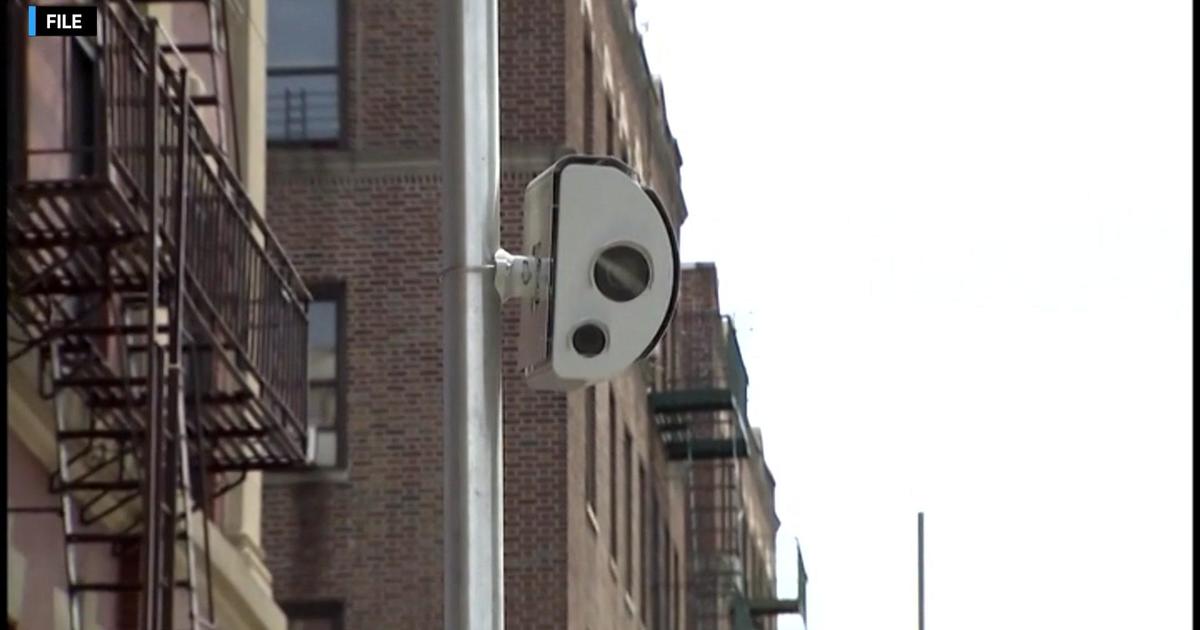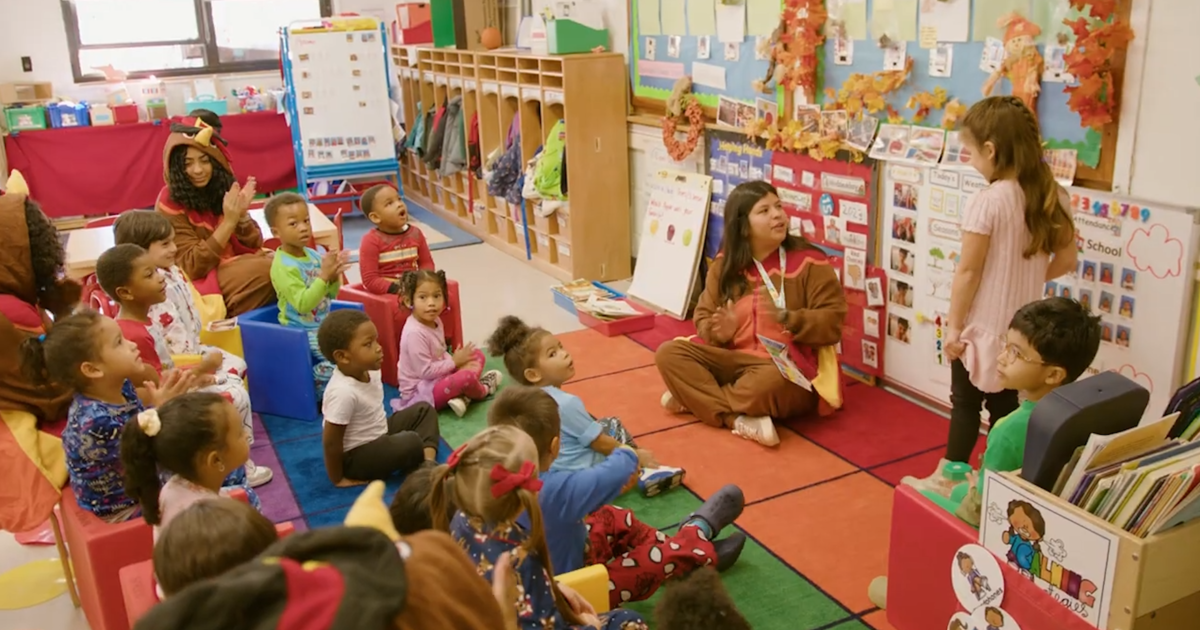Events Held Across Tri-State Area For Banned Books Week
NEW YORK (CBSNewYork) -- This week has marked Banned Books Week across the country, and readings and discussions have been held and planned across the Tri-State Area to highlight what organizers call the freedom to read.
Banned Books Week was set to run through Saturday. The American Library Association began Banned Books Week began in 1982, after challenges to books skyrocketed.
Since then, more than 11,300 books have been challenged, organizers have said. The ALA says there were 326 challenges to books recorded last year alone, and many more go unreported.
"People challenge books that they say are too sexual or too violent. They object to profanity and slang, and protest against offensive portrayals of racial or religious groups – or positive portrayals of homosexuals," the ALA said in 2010. "Their targets range from books that explore the latest problems to classic and beloved works of American literature."
Events have been held across the country, with some planned for beyond the official end of Banned Books Week. On Monday, the Housing Works Bookstore Café, at 126 Crosby St. in NoLIta, plans stage a reading of banned and censored poems by icons such as Allen Gisnberg, Walt Whitman, and even the ancient poet Sappho.
Contemporary poets – including Timothy Donnelly, Deborah Landau, Alex Dimitrov, Monica Ferrell, Matvei Yankelevich, Claire Donato, Aimee Herman, Phil Fried, and Ana Bozicevic – are set to read the controversial poems.
Events were also held this past week in Patchogue, Long Island; and Troy, Albany and Ithaca upstate, as well as Succasunna, N.J.; Bethel, Hartford, and Washington Depot, Conn.
Twitter parties were also organized earlier this week for Banned Books Week, in which supporters were urged to use the hashtag #bannedbooksweek in an effort to fight censorship.
In 2012, the 10 most frequently banned or challenged books were:
• Captain Underpants, by Dav Pilkey, a children's novel series that began in 1997, depicting the adventures of two fourth-graders and their school principal whom they have hypnotized into the eponymous superhero clad in a cape and briefs. Reasons for bans: "offensive language, unsuited for age group."
• The Absolutely True Diary of a Part-Time Indian, by Sherman Alexie, a 2007 young-adult novel about a Native American teenager living on a reservation, and his struggles attending an all-white high school. Reasons for bans: "offensive language; racism; unsuited to age group."
• Thirteen Reasons Why, by Jay Asher, the 2007 story of a high school student discovering cassette tapes recorded by a classmate who committed suicide – in which she explains how 13 people played a role in her death. Reasons for bans: "drugs/alcohol/smoking; sexually explicit; suicide; unsuited for age group."
• Fifty Shades of Grey, by E.L. James, a popular 2011 erotic romance novel known for its explicit scenes sexual practices such as of bondage/discipline and sadism/masochism. Reasons for bans: "offensive language; sexually explicit."
• And Tango Makes Three, by Peter Parnell and Justin Richardson, a 2005 children's story based on two real-life male penguins at the Central Park Zoo that coupled and raised a chick together. Reasons for bans: "homosexuality; unsuited to age group."
• The Kite Runner, by Khaled Hosseini, the 2003 story of a boy's life in Afghanistan, a brutal assault on his friend, and his return to visit Taliban-controlled Afghanistan as a grown man. Reasons for bans: "homosexuality; offensive language; religious viewpoint; sexually explicit."
• Looking for Alaska, by John Green, a 2005 novel telling the story of a teenage boy who leaves home to attend a boarding school in Alabama and becomes involved in a relationship with an emotionally troubled girl. Reasons for bans: "offensive language; sexually explicit; unsuited for age group."
• Scary Stories to Tell in the Dark, by Alvin Schwartz, a three-part series published between 1981 and 1991, and featuring an assortment of short horror stories based on folklore and urban legends. Reasons for bans: "unsuited for age group; violence."
• The Glass Castle, by Jeannette Walls, a 2005 memoir telling Walls' own story of a poverty-stricken childhood and upbringing at the hands of troubled parents. Reasons for bans: "offensive language; sexually explicit."
• Beloved, by Toni Morrison, a 1987 novel set after the Civil War, telling the story of an escaped slave who killed her 2-year-old daughter rather than allowing her to be returned to slavery. Reasons for bans: "sexually explicit; religious viewpoint; violence."
You May Also Be Interested In These Stories:



